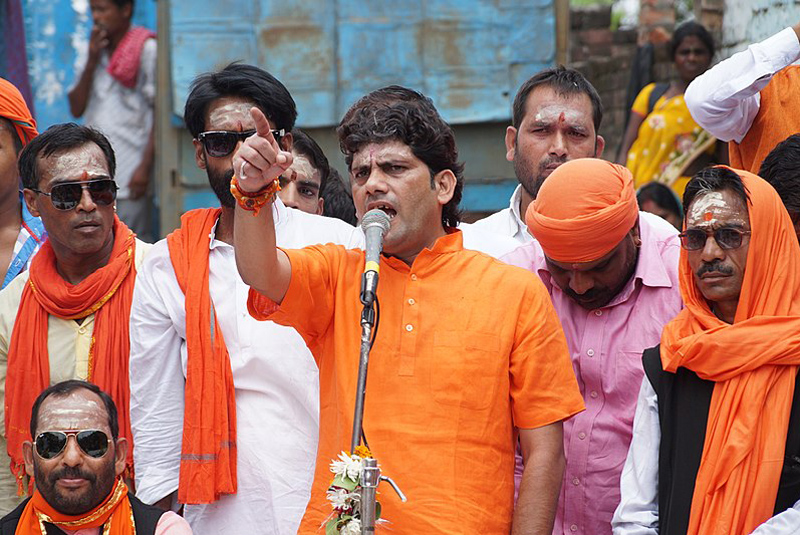A few days back, members of the Bhartiya Janta Yuva Morcha (BJYM), Madhya Pradesh, filed an FIR against two Netflix India executives for allegedly ‘hurting the religious sentiments of Hindus’ by showing a kissing scene, allegedly shot in a Temple complex, in the drama-series A Suitable Boy. The FIR comes almost after a month of its release in India. Therefore it begs a question, why this delay? What took so long for the BJYM leaders to take ‘offence’ from a scene, which, till now, had not attracted any special attention from the viewers?
This is not the first time a Hindutva organisation has taken offence to a scene from an artistic endeavour. A Suitable Boy is just the latest in a series of ads, books, cinemas, art and web-series that have offended the Hindutva ecosystem and drawn their ire in recent years. We have witnessed many hashtag campaigns, run by the Hindutva Social Media machinery, asking to Boycott OTT platforms like Netflix and Amazon for hurting religious sentiments. Just few weeks ago, a Tanisq Ad had ‘offended’ the Hindu right, while earlier this year, their guns were trained at Amazon for the critical web series Patal Lok. A few decades ago, the acclaimed painter M.F Hussain was in their firing line. In fact, the history of what Booker winning novelist Salman Rushdie has called the ‘culture of offendedness,’ goes back decades and is enmeshed with the trajectory of Hindutva movement in India. The genesis of this ‘culture of offendedness’ in India can be traced back to the nineteenth-century critique of Hindu culture by the colonialists.
Those critiques created a sense of victimhood, particularly among Upper caste apologists, as well as a reactionary inferiority complex, which treats every critique of Hindu society, however justified, as a conspiracy to malign and attack Hinduism. Any attempts at reform of Hindu society — like the abolition of the practice of Sati or increasing the age of marriage of Girls — was met with resistance from upper caste male apologists who interpenetrated those ‘reforms’ as an attack on Hinduism by outsiders to mobilise the broad spectrum of ‘Hindu’ society. This ‘culture of offendedness,’ which initially was a kind of defensive reaction against an alien rule, gradually transformed into an attack strategy in post-independence period by the Hindutva movement.
-30-
Copyright©Madras Courier, All Rights Reserved. You may share using our article tools. Please don't cut articles from madrascourier.com and redistribute by email, post to the web, mobile phone or social media.Please send in your feed back and comments to editor@madrascourier.com











